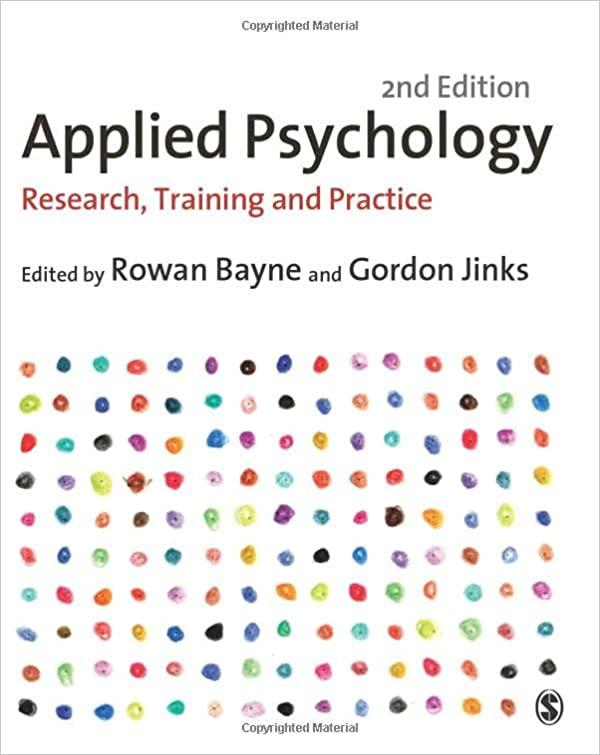Question
Celia Moore offers the following example of how an individual may use mental maneuvers to disengage his or her conscience (not the technical term) from
Celia Moore offers the following example of how an individual may use mental maneuvers to "disengage" his or her "conscience" (not the technical term) from his or her immoral actions. Ms. Moore used the moral disengagement principles to describe the maneuvers. "Imagine Sam has an internal standard that prohibits theft, but has taken a newspaper without paying for it from Starbucks. Moral disengagement mechanisms help Sam construe taking the newspaper as no big deal (distortion of consequences), believe that everyone takes small things like a paper sometimes (diffusion of responsibility), that taking the paper is tiny compared to others' violations (advantageous comparison), or that he's seen Starbucks employees take copies of the paper, so why shouldn't he (displacement of responsibility)? He could think that in the grand scheme of things, being an informed citizen is more important than paying for the paper (moral justification). He could even plan on leaving the paper in the caf when he was finished with it, so really, he was just "borrowing" it (euphemistic labeling). "He could think that Starbucks is a large heartless corporation that won't notice the missing paper (dehumanization), or even deserves to have the paper taken from it because it charges so much for their coffee (attribution of blame)."
Consider the mechanisms of moral disengagement and ethical fading from our readings this week. Discuss either:
- An ethical failing that occurs in a public safety organization you're familiar with. Explain one or more moral disengagement or self-deception strategy that is used to avoid moral responsibility for the behavior.
- A story in the news of an ethical failing committed by a public safety professional. Argue how the professional might, using one or more moral disengagement or self-deception strategies, be convinced of a lack of moral responsibility for the behavior.
Please provide sources for future reference. Thank you!
Reference:
Moore, C. (2015). Moral disengagement. Current Opinion in Psychology, 6, 199-204.https://citeseerx.ist.psu.edu/doc_view/pid/3e6b8449ab8e1e71347cd75ecd20fe6
Step by Step Solution
There are 3 Steps involved in it
Step: 1

Get Instant Access to Expert-Tailored Solutions
See step-by-step solutions with expert insights and AI powered tools for academic success
Step: 2

Step: 3

Ace Your Homework with AI
Get the answers you need in no time with our AI-driven, step-by-step assistance
Get Started


